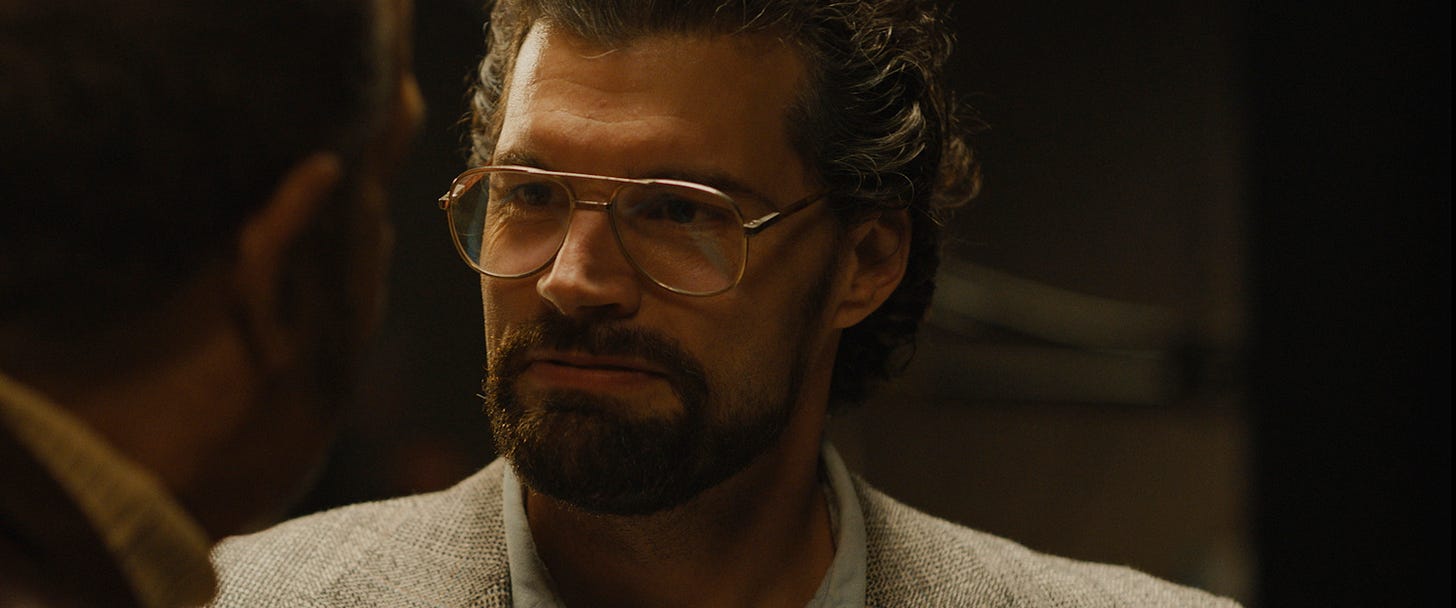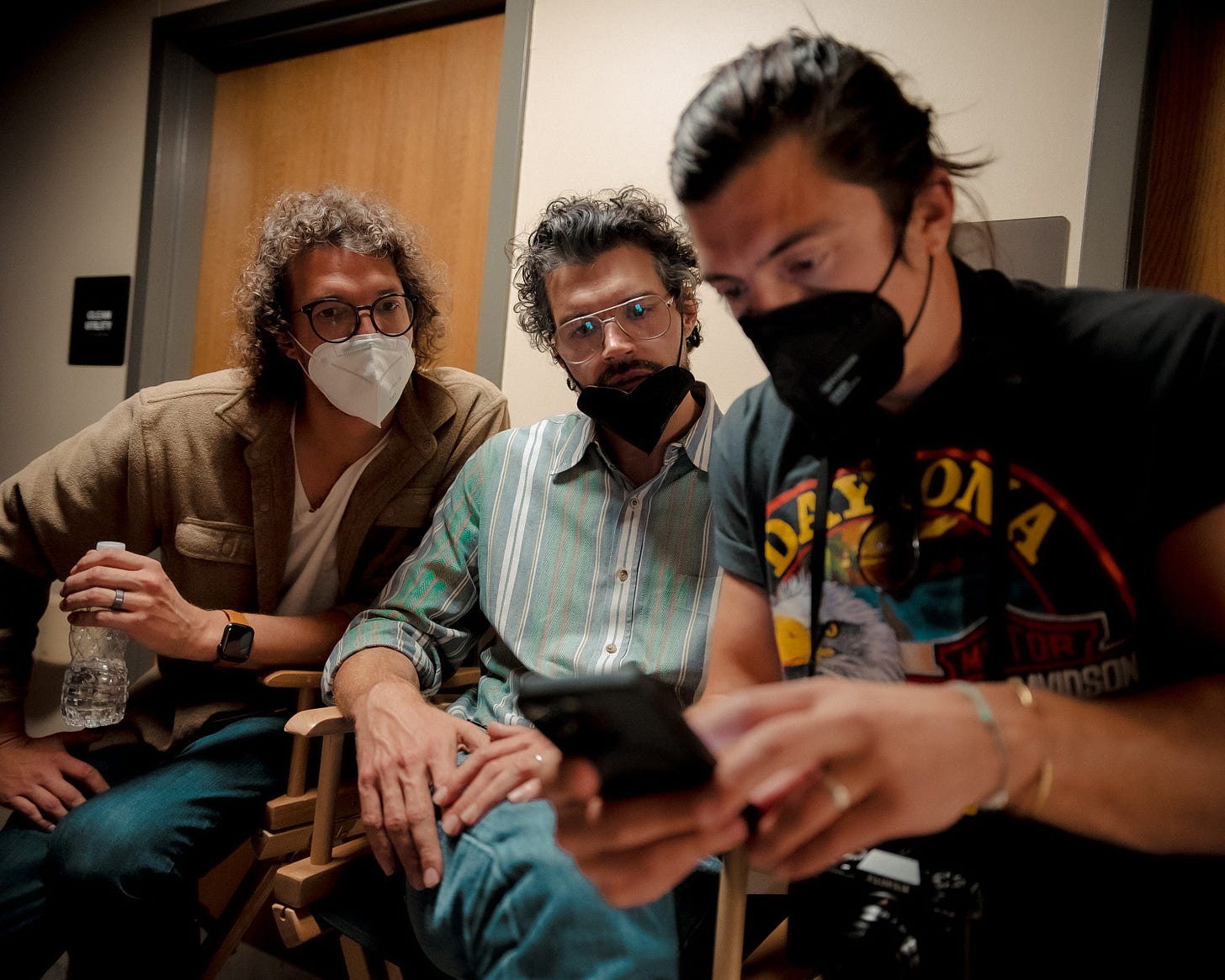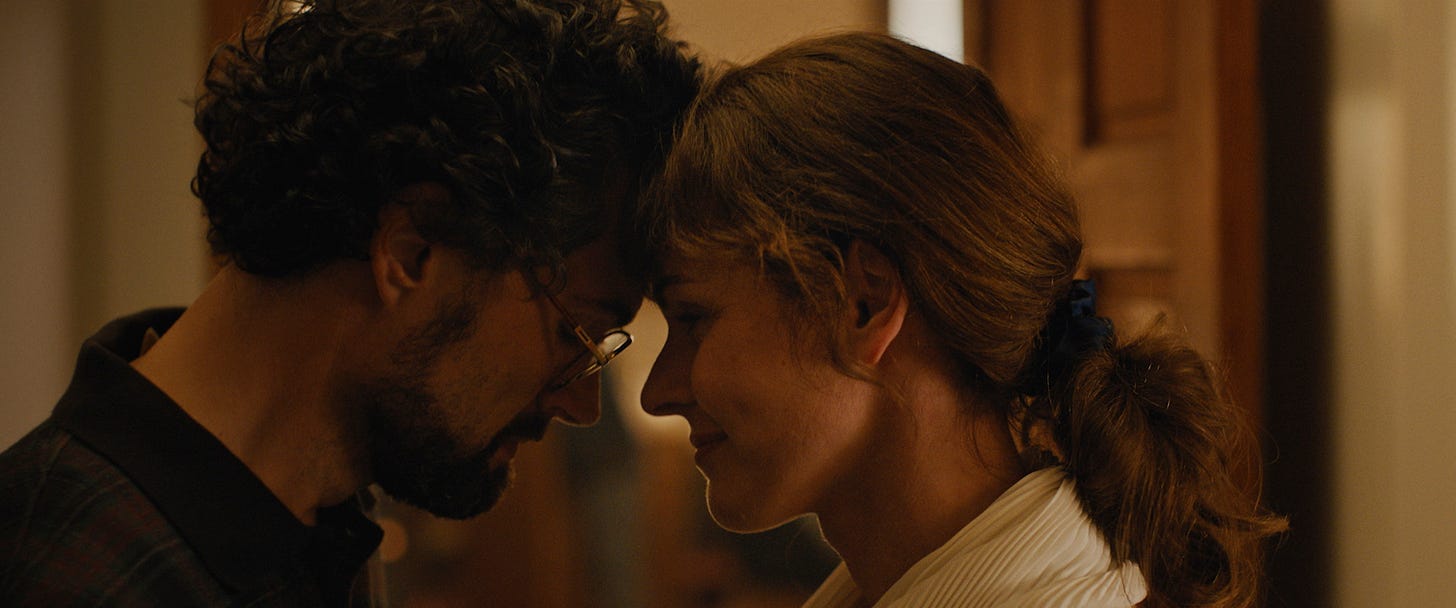Interview with Unsung Hero writer/director/star Joel Smallbone
Alise Chaffins:
It's so nice to see you. Thank you for taking time to do this today. I appreciate it. Yeah. So first question, you've done a lot of performing, obviously, as a musician, and you've done other acting jobs as well. Is there like a different mindset that you get in whenever you're going into acting when you're switching away from like, performing as a musician?
Joel Smallbone:
That's good question. At least someone once said that, with performance, live performance, you're always focused on the person in the very back of the room, like you're trying to reach as far out as possible. But you have to, so everything becomes very big and sort of exaggerated and boisterous. You know. Whereas with with film, it's the camera is so close. And so it's almost, you have to like invert your principles of performance and going so much more subtle and so much more intimate in a lot of these moments. And so once I sort of understood the difference, it to not be this sort of too big, but to actually, less is more so much more in filmmaking, it really, I think it has served me well to try and make that leap from musician to movies.
AC:
Interesting. Yeah. So what was it like this time to play somebody who's so close to you to play your own father, it's just such a different kind of thing from other roles that you've had.
JS:
I have dubbed it a very expensive therapy session. But then think about what we do with therapy, we go, okay, I want to like I'm going to reimage something, I'm going to go back to the scene of the crime, I'm going to, you know, embody that thing and reimagine it. And that was so much what I had the chance to do, to drop into his shoes, or literally, his jacket was the same jacket he wore 30 years ago, for a subject that I've known my entire life. I'm bone in his bone of pleasure, especially I'm very, we're very similar to one another as well. And so it was so rich. Not only that, but I co-wrote and co-directed the film with Richard Ramsey. And so to be able to write the story as well. I obviously experienced it from a child POV, but now I'm roughly his age. So to flip it on its head and to experience it from a man's point of view, as a husband and all the fear and the pride and the compounding failure. Was really, it was just that it gave me so much empathy for him, truthfully.

AC:
Yeah, yeah, that was actually something I kind of wanted to ask about as well. It's not always the most flattering picture of your father. Right? Did you work with him in the script writing? You know, what was his input on all of that? Because it's not that he's a villain or anything, but it's definitely not always, you know?
JS:
Yeah, I did have one. I did have one woman say she wanted to punch him in the throat. Well, that was only one time though. By and large, I by and large, here's the thing. It's a catch-22. Because I felt like the further we went with his character in turn, externalizing what was going on internally, the more men could relate. And that was a big deal for me as a man in charging men and husbands and fathers, you know. And so, and that was actually his great compliment to me was you externalized what I was feeling internally. I made the script available for him to read. But what's what's fascinating just found this out, like last week, is that he never read it. Mom read it, and offered comments, but out of reverence for him, not, you know, manipulating or controlling the story. He never read it. The first time he saw it was in when we played it for the family.
AC:
Oh, yeah. And what was his reaction to that?
JS:
He went and talked to the projector operator afterwards. I honestly, I don't think he knew what to do. Now in fairness, though, to that he's seen it he's probably watched it 20 times. So he's, I think it's been something that he has been a bit of a love letter in a weird way. Although we read like you said we wanted to tell it in a gritty, grounded sort of warts and all sort of way. He has felt very seen by it.

AC:
Excellent, very good. So this is your first time in the director's chair. Correct. Is this the first film that you've directed?
JS:
Officially? Yeah, you know, nothing's official in music, so I might have dried music video. No here and there, but it's just sort of a little ambiguous. Right?
AC:
Right. So what was it like working in that capacity, especially when you're also writing the script, and you're starring in the movie, you know, what was it like to get in the director? And like, how does that? How does that differ as well from some of the other roles you've taken?
JS:
Surprisingly natural, because you got to think the least that like when we do music, you have to be all things. Like, you're the writer, you're the editor, you're the director, you're the producer, you're the marketing guy. And so when we started crossing the bridge, from music to movies, you just kind of go oh, well, I didn't initially intend, I always wanted to play dead. But I didn't necessarily intend to co-write it with Richie, I didn't even really intend to co-direct it. And it just sort of was the way the cookie crumbles. But I'm really grateful because I felt, I think, if I hadn't have had the ability to direct, I think my, the A-type in me might have broken because it was just such a personal story. I just felt I had to have my hand in being in all the pie instead of just a portion of it.

AC:
Right, right. Okay. So one of the things in this movie, it talks a lot about, there's language using talking about like, miracles, and that kind of thing. But when you look at it, a lot of the miracles are kind of manifested in things like clipping coupons, or, you know, going to somebody and asking for help. So if you're talking to somebody, maybe who didn't share your faith who was coming to see the movie, since it's being offered to a broad audience, you know, how would you explain the idea behind using that term when it kind of looks like just stuff people do?
JS:
Well, my sense is, it's all a miracle. Like, every breath in every heartbeat seems to me like a miracle. We live in Nashville, Tennessee, and in Australia, all the leaves don't die, and then sort of come back. And we're right in the middle of spring right now. And it's just as you look around and go, it's a miracle. So to me, I think it's limited, it's a limiting belief, and it's even limiting God, I dare say, to say that the only kind of miracle that I will prescribe that word to is something that is sort of superstitious or sort of miraculous intervention. Like I think people can be miracle makers, you know, and, and so, and I will say this, too, we had to actually sort of pull the reins back on all the miracles because there were so many that some were unexplainable. But in the movie, it started feeling like bad screenwriting. Because in real life, when you have a check show up in the mail that covers you billed by dollars, you're like, in a movie, you go, well, that's just movie magic, you know. And so we ended up leaning more on like the real the people were the miracles. And the fact that a guy had a brand-new… It wasn't his rickety old van that he had us the keys to, it was his brand new minivan. The fact that a human would be enticed to do something like that, like that, kind of goes against our human proclivities until it seemed miraculous to me.
AC:
Excellent. Well, thank you so much for taking time to talk to me. I really appreciate it. Thank you for the beautiful movie.
JS:
So thank you for your thoughtful questions. And I'll just say to your listeners and viewers, hey, if you love speaking in miracles, if you love miracles and mums and music and the 90s and you love your family, come to the theaters on April the 26th. It's not only our parents’ 49th wedding anniversary, but we're also calling it Family Day, and so will look forward to seeing you in the cinemas around the country in just a few short days. All right.
AC:
Thank you so much. Have a great afternoon.

